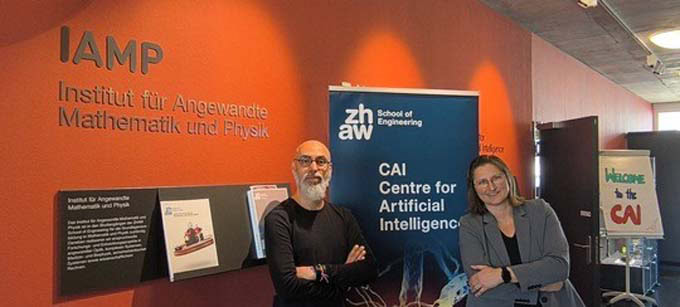A question of organization
Establishing effective management structures in a company requires clear hierarchies. Dirk Kreuter, multi-entrepreneur, speaker and author, emphasizes the importance of a stable framework for increasing productivity and efficiency.

What is the secret of perfectly functioning machinery? Is it the fundamental quality of the individual parts? This aspect certainly plays a role. But even the best software and the most stable hardware are useless if the various fragments do not work together effectively and in perfect harmony. Every element - from the smallest cogwheel to the control computer - knows its task and is also aware of its role in a larger whole. Getting this structure and the corresponding mentality into the management team of a company is a major step towards a successful future, especially in difficult economic times. To achieve this, however, there are a few points to bear in mind.
1. create a clear hierarchy
Like any stable structure, a successful company needs a solid foundation in order to survive adverse weather conditions such as economic crises or financial and other downturns. Every employee should know exactly who is above them in the hierarchy and what their tasks and responsibilities are. This creates clarity, promotes efficiency and allows everyone in a management position to focus on their specific tasks.
2. the art of delegating
A successful boss must learn to relinquish responsibility. Everyone has to learn this sooner or later - either the hard way or the easy way. Once a company reaches a certain size, it becomes impossible for a manager to personally supervise all tasks and every employee. Through targeted delegation and a clear division of tasks within a management team, tasks can be completed more efficiently. In addition, everyone has the opportunity to make the best possible use of their individual skills and strengths.
3. being able to let go
Successful delegation goes hand in hand with a skill that many managers find difficult: not getting lost in every detail. But even though it may go against the very nature of a person in a managerial position, at a certain point in the company's growth there is no choice but to focus on the big picture. By freeing them from micromanagement, they create space for strategic thinking and enable the team to act independently. This not only promotes efficiency, but also creativity and innovation in the company through the influence of different voices.
4. communication as the key to success
If you want to keep your company running like a well-oiled machine, you need to create enough space for an open and clear exchange between its parts. Regular meetings, clearly defined lines of communication and transparent decision-making processes are key to ensuring that the management team shares the company's vision and keeps everyone involved. A positive working environment is created through an open communication culture, which in turn promotes employee motivation and commitment.
5. continuous further development
Of course, all the points mentioned above must not remain a rigid concept. Methodologies and measures quickly gather dust in a dynamic business world, which is why a successful management structure must continuously evolve. This
includes learning from experience, adapting to changing market conditions and constantly striving for improvement. With a management culture that has a strong hierarchical basis but is just as dynamic in its details, every company can be well equipped for an economically successful future.

To the author:
Dirk Kreuter is one of Europe's best-known sales trainers, multi-entrepreneurs and speakers. Over the past 32 years, he has generated millions in sales for DAX-listed companies as well as small and medium-sized enterprises. In 2016, he changed his focus and has been concentrating on open seminars ever since. His target group primarily includes committed entrepreneurs who want to take the next step towards becoming market leaders through continuous growth.
This article originally appeared on m-q.ch - https://www.m-q.ch/de/eine-frage-der-organisation/









